R.B
JF-Expert Member
- May 10, 2012
- 6,296
- 2,575
Ten foods you didn't know could be frozen: How avocados, coffee and eggs can last for six months (and taste as good as fresh)
Many of us are guilty of binning food, but it might surprise you to know exactly much of what we throw away could be saved if it was frozen before going off.
Eggs, avocado, fresh herbs and even cheese are among the unlikely items that can go in the freezer to not only save us pennies, but also help to reduce the seven million tonnes of food wasted in the UK every year.
And by following a few simple tricks on preparing foods for the freezer, it can even save you time spent in the kitchen - as well as ensuring your meals taste better.
Scroll down for video

More than seven million tonnes of food is wasted in the UK every year, but there are many unlikely items that can be frozen to save produce from the dustbin
Helen White of the campaign Love Food Hate Waste said: 'You can freeze pretty much everything. There are a couple of exceptions such as soft cheese, as the texture goes very strange.
'The freezer acts like a pause button on food and so you can freeze it right up to the use-by date. It also stores safely for years - it's just that the quality will start to deteriorate after three months.
'Ideally use within six months but don't panic if it's been there longer. It will just need longer, slower cooking and a bit more added flavour likes herbs and spices.'
Here are her tips for successfully freezing your produce.
Eggs

Surprisingly, eggs can be frozen - but not in their shells. They can either be beaten first, or the yolk and whites separated into different containers
Although eggs can't be frozen in their shells - as they can explode - there are two ways to prepare them for the freezer.
Helen said: 'Firstly, crack the egg and separate yolks and whites into separate plastic containers or food bags before freezing. This is handy for baking.
'Or you can crack the egg into a plastic tub and beat it before freezing - great for omelettes and scrambled eggs. Put them in an airtight container and label with the date and the number of eggs you’ve used.
'Whites and yolks can also be frozen separately. Store whites in freezer bags for use in omelettes, meringues and mousses. Beat a pinch of salt or sugar into yolks to stop them from thickening too much and freeze in an airtight container.'


Cheese can be grated and then frozen, while milk can also be put in the freezer - but it's a good idea to pour it into ice cube trays so you have ready made portions to drop into a cup of tea
Cheese
Not all cheeses can be frozen, but hard varieties can. Cream cheese risks going watery once in the freezer but if you grate hard cheese and freeze in a bag, it will be ready to use in your cooking at a later date.
'Freezing a whole block of cheese makes it harder to use. But, if you grate cheese before putting it in the freezer, you can use it for tossing on top of a home-made pizza or giving a cheesy kick to a pasta dish, without needing to defrost first.
'Grate it and pop in an airtight container. Stilton should be crumbled and stored in a sealed container – its texture even improves having had a freezer moment.' said Helen.

Huge numbers of avocados are wasted each year due to their short shelf life, but can be frozen well
Avocado
Finding an avocado at its perfect ripeness can often be a challenge in itself, and there's a very short window before the fruit turns an unappetising shade of brown. As a result, huge numbers are thrown away every year.
But, like most fruits, they freeze well - by either chopping in half and removing the stone, or mashing it up and popping into a bag with a dash of lemon or lime to help preserve it. Last year, Tesco even launched the country's first frozen avocados.


Fresh herbs like coriander can be finely sliced and frozen, while hummus can be put in the freezer with a layer of olive oil on top to retain it's moisture
Fresh herbsand spices
Fresh herbs have a very short shelf life and can often go soggy in the fridge, but if you finely chop and freeze them in time they will retain their flavour - and save you time and money at a later date.
They will just need to thaw on a plate before adding to whatever you're cooking. Meanwhile, ginger can often dry up in the fridge but can also be finely chopped and frozen.
Hummus
Many makes of hummus can fair well in the freezer. Just spoon it into a freezer-safe container and pour a thin layer of olive oil on top to form a seal preventing it from losing moisture.

To freeze potatoes, par boil them first, leave to cool and then place in the freezer. Mashed potato can also be frozen
Potatoes
TOP FREEZING TIPS FROM LOVE FOOD HATE WASTE
1. Label food well to avoid any UFOs (unidentified frozen objects)
2. Once defrosted, use within 24 hours
3. Freeze food in individual portions
4. Freeze milk in ice cubes - perfect for popping straight into a cuppa when that unexpected guest comes around
5. Plastic containers are better than cardboard boxes for freezing
6. High water content vegetables like tomatoes may be better pureed before freezing, particularly if intended for use in that condition
It's a well known fact that spuds don't like the fridge. But to save on waste - or get ahead for the Sunday roast - boil your potatoes for five minutes, leave to cool and then freeze.
When you want them thaw overnight and roast the next day. Mashed potato also freezes well.
Mushrooms
Mushrooms can be frozen, but they'll need a bit of preparation first. Chop the mushrooms into slices and spread onto a large plate, ensuring that none of the slices overlap.
Freeze for two hours, and then they can be transferred to freezer containers.
Because they were frozen separately first, the pieces will stay loose and won't stick together in the freezer.
Butter
You'll often find packs of butter on offer at supermarkets but can be put off if you're unlikely to use it all up. However, butter can be frozen well and even cut up into helpful portions for baking.

Leftover coffee need not be poured down the sink - pour into ice cube trays to give iced coffee a boost
Wine
Leftover wine can be helpfully poured into ice cube trays to create helpful portions to add to cooking.
Leftover coffee
Pour any leftover coffee into ice cube trays and freeze - they can be dropped into iced coffee to give it an extra boost.
- Avocados, cheese and even leftover coffee and wine can also be frozen
- Love Food Hate Waste campaign says most foods can be put in freezer
- They should ideally be eaten within six months but can be used after that
- Food frozen for longer will just need slower cooking and added flavours
Many of us are guilty of binning food, but it might surprise you to know exactly much of what we throw away could be saved if it was frozen before going off.
Eggs, avocado, fresh herbs and even cheese are among the unlikely items that can go in the freezer to not only save us pennies, but also help to reduce the seven million tonnes of food wasted in the UK every year.
And by following a few simple tricks on preparing foods for the freezer, it can even save you time spent in the kitchen - as well as ensuring your meals taste better.
Scroll down for video
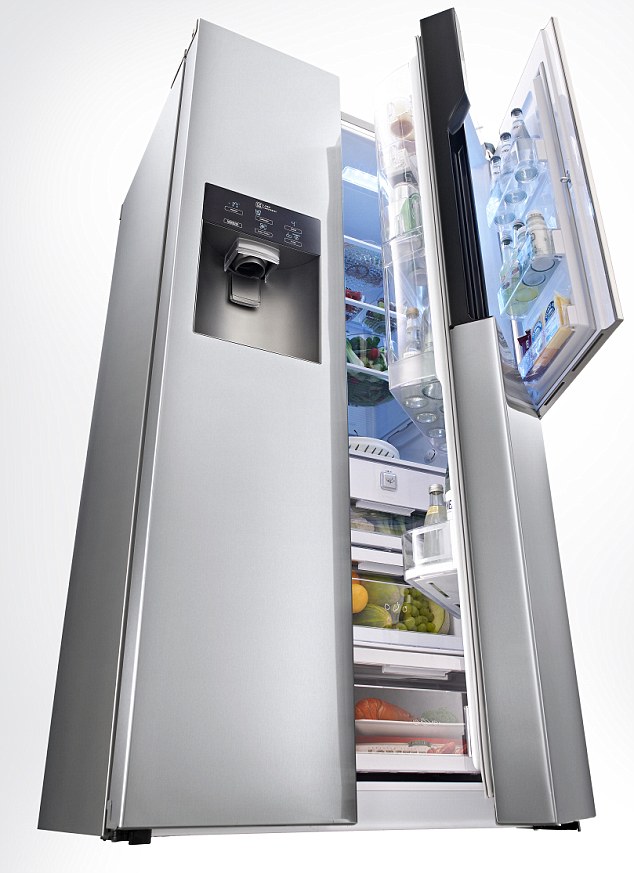
More than seven million tonnes of food is wasted in the UK every year, but there are many unlikely items that can be frozen to save produce from the dustbin
Helen White of the campaign Love Food Hate Waste said: 'You can freeze pretty much everything. There are a couple of exceptions such as soft cheese, as the texture goes very strange.
'The freezer acts like a pause button on food and so you can freeze it right up to the use-by date. It also stores safely for years - it's just that the quality will start to deteriorate after three months.
'Ideally use within six months but don't panic if it's been there longer. It will just need longer, slower cooking and a bit more added flavour likes herbs and spices.'
Here are her tips for successfully freezing your produce.
Eggs
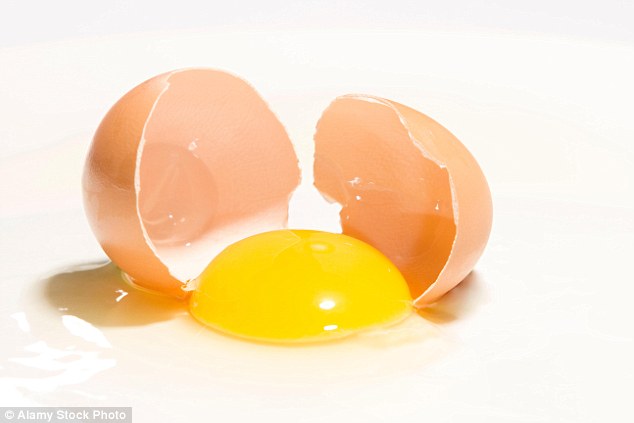
Surprisingly, eggs can be frozen - but not in their shells. They can either be beaten first, or the yolk and whites separated into different containers
Although eggs can't be frozen in their shells - as they can explode - there are two ways to prepare them for the freezer.
Helen said: 'Firstly, crack the egg and separate yolks and whites into separate plastic containers or food bags before freezing. This is handy for baking.
'Or you can crack the egg into a plastic tub and beat it before freezing - great for omelettes and scrambled eggs. Put them in an airtight container and label with the date and the number of eggs you’ve used.
'Whites and yolks can also be frozen separately. Store whites in freezer bags for use in omelettes, meringues and mousses. Beat a pinch of salt or sugar into yolks to stop them from thickening too much and freeze in an airtight container.'
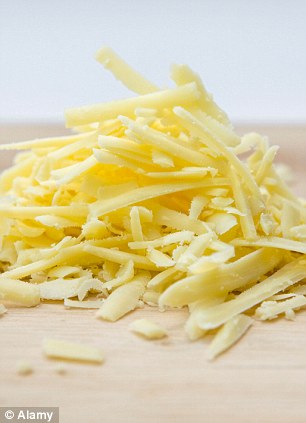
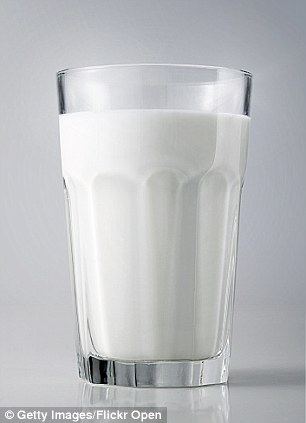
Cheese can be grated and then frozen, while milk can also be put in the freezer - but it's a good idea to pour it into ice cube trays so you have ready made portions to drop into a cup of tea
Cheese
Not all cheeses can be frozen, but hard varieties can. Cream cheese risks going watery once in the freezer but if you grate hard cheese and freeze in a bag, it will be ready to use in your cooking at a later date.
'Freezing a whole block of cheese makes it harder to use. But, if you grate cheese before putting it in the freezer, you can use it for tossing on top of a home-made pizza or giving a cheesy kick to a pasta dish, without needing to defrost first.
'Grate it and pop in an airtight container. Stilton should be crumbled and stored in a sealed container – its texture even improves having had a freezer moment.' said Helen.

Huge numbers of avocados are wasted each year due to their short shelf life, but can be frozen well
Avocado
Finding an avocado at its perfect ripeness can often be a challenge in itself, and there's a very short window before the fruit turns an unappetising shade of brown. As a result, huge numbers are thrown away every year.
But, like most fruits, they freeze well - by either chopping in half and removing the stone, or mashing it up and popping into a bag with a dash of lemon or lime to help preserve it. Last year, Tesco even launched the country's first frozen avocados.
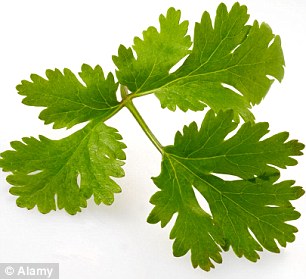
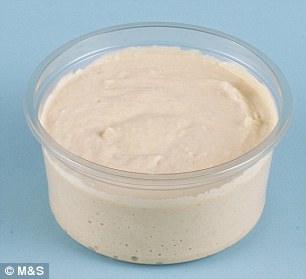
Fresh herbs like coriander can be finely sliced and frozen, while hummus can be put in the freezer with a layer of olive oil on top to retain it's moisture
Fresh herbsand spices
Fresh herbs have a very short shelf life and can often go soggy in the fridge, but if you finely chop and freeze them in time they will retain their flavour - and save you time and money at a later date.
They will just need to thaw on a plate before adding to whatever you're cooking. Meanwhile, ginger can often dry up in the fridge but can also be finely chopped and frozen.
Hummus
Many makes of hummus can fair well in the freezer. Just spoon it into a freezer-safe container and pour a thin layer of olive oil on top to form a seal preventing it from losing moisture.
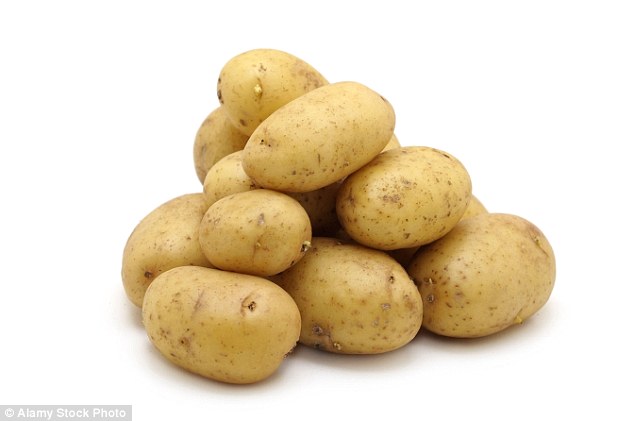
To freeze potatoes, par boil them first, leave to cool and then place in the freezer. Mashed potato can also be frozen
Potatoes
TOP FREEZING TIPS FROM LOVE FOOD HATE WASTE
1. Label food well to avoid any UFOs (unidentified frozen objects)
2. Once defrosted, use within 24 hours
3. Freeze food in individual portions
4. Freeze milk in ice cubes - perfect for popping straight into a cuppa when that unexpected guest comes around
5. Plastic containers are better than cardboard boxes for freezing
6. High water content vegetables like tomatoes may be better pureed before freezing, particularly if intended for use in that condition
It's a well known fact that spuds don't like the fridge. But to save on waste - or get ahead for the Sunday roast - boil your potatoes for five minutes, leave to cool and then freeze.
When you want them thaw overnight and roast the next day. Mashed potato also freezes well.
Mushrooms
Mushrooms can be frozen, but they'll need a bit of preparation first. Chop the mushrooms into slices and spread onto a large plate, ensuring that none of the slices overlap.
Freeze for two hours, and then they can be transferred to freezer containers.
Because they were frozen separately first, the pieces will stay loose and won't stick together in the freezer.
Butter
You'll often find packs of butter on offer at supermarkets but can be put off if you're unlikely to use it all up. However, butter can be frozen well and even cut up into helpful portions for baking.

Leftover coffee need not be poured down the sink - pour into ice cube trays to give iced coffee a boost
Wine
Leftover wine can be helpfully poured into ice cube trays to create helpful portions to add to cooking.
Leftover coffee
Pour any leftover coffee into ice cube trays and freeze - they can be dropped into iced coffee to give it an extra boost.